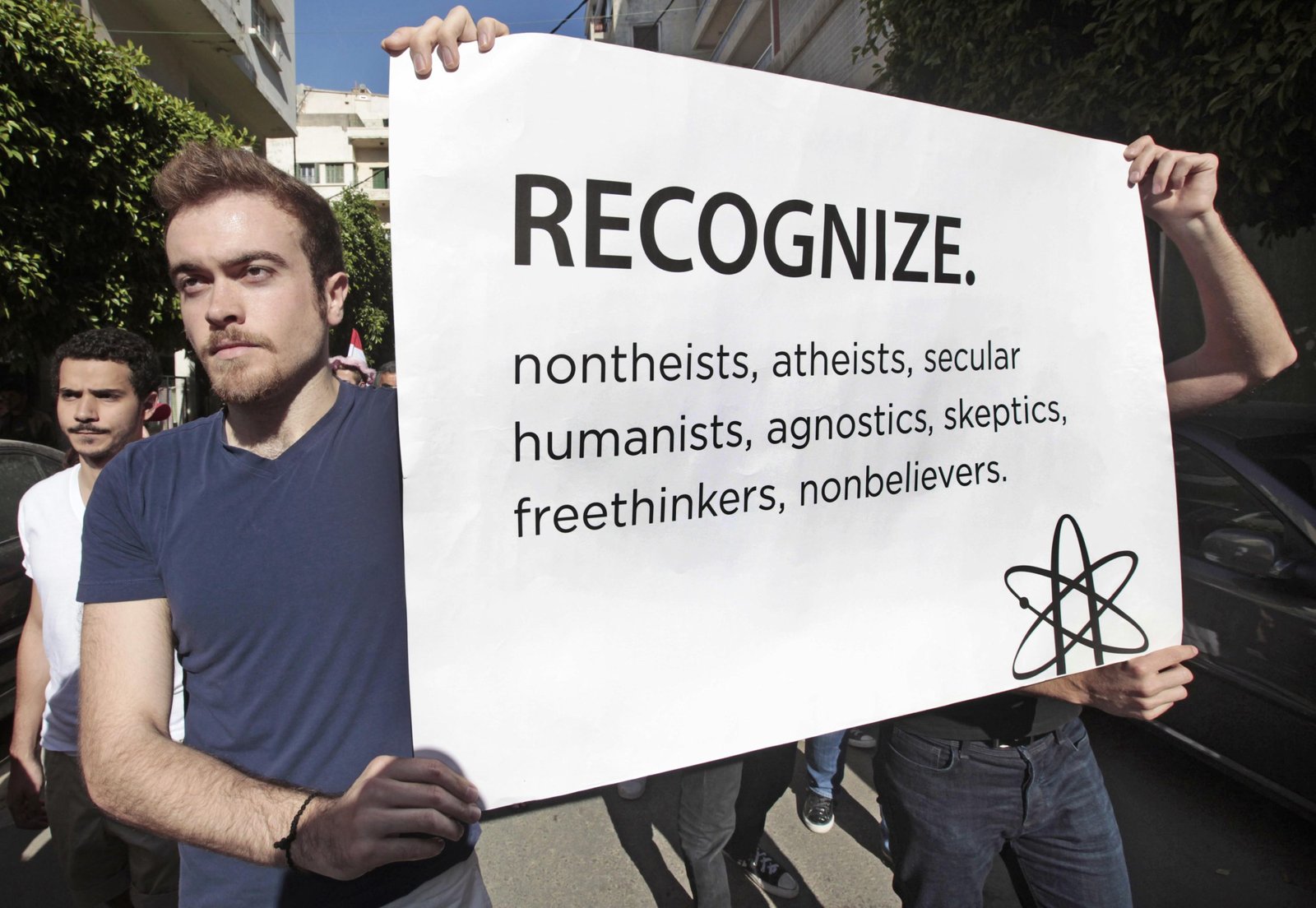
October 5, 2023
Americans with no religious affiliation have a wide variety of religious and spiritual beliefs, with 43% saying they believe in God or a higher power and a similar number saying they are spiritual say they do not consider themselves religious.
However, 88% have little or no trust in religious or spiritual leaders, and 75% have little trust in organized religion in general. 68% cite aversion to organized religion as an important reason they don’t consider themselves religious.
Only 10% of all adults have a great deal of confidence in organized religion, and that share has steadily declined in recent years, and confidence is now half what it was in 2016. Of those who currently follow a religion, only 14% have a lot of trust in organized religion, 54% have some confidence, and 31% have no trust at all. Only 1% of people with no religious affiliation, including those who identify as atheists, agnostics, or those who don’t do anything in particular, are very confident. One in 10 adults has a lot of trust in organized religion, banks, or the Supreme Court. 16% have a lot of trust in government information.
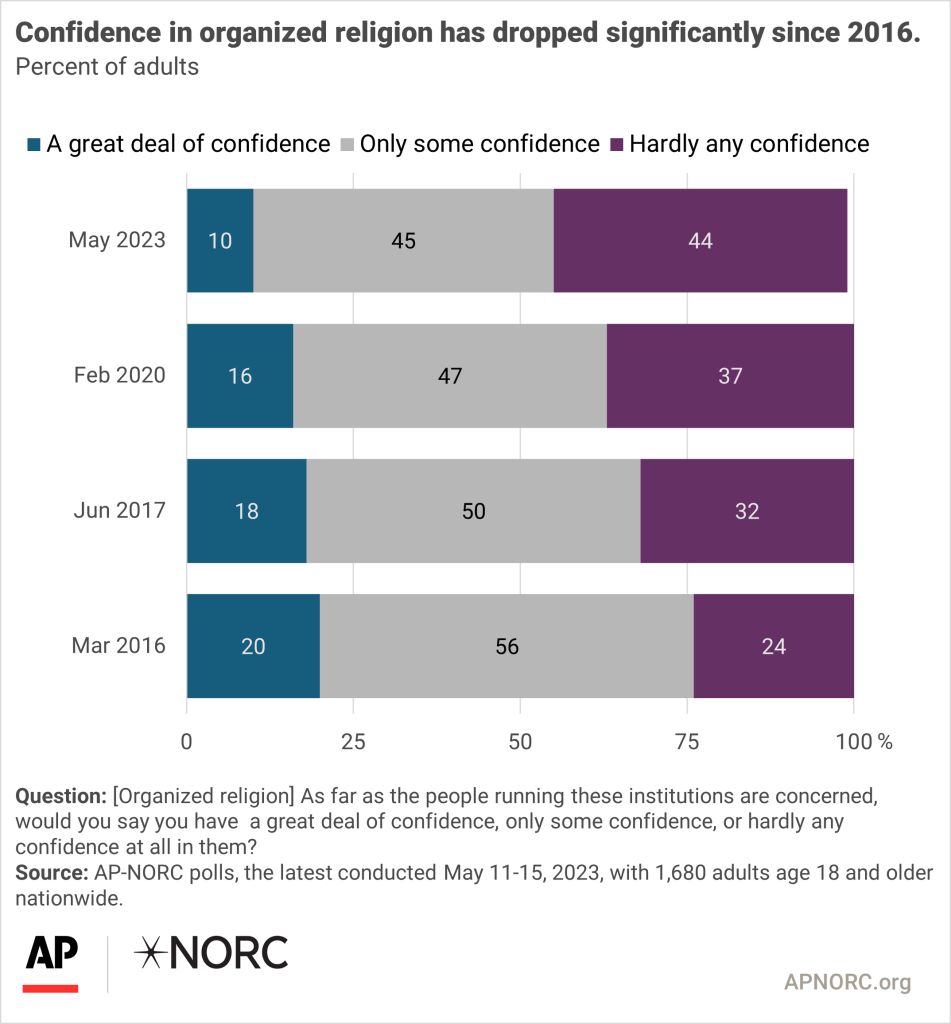
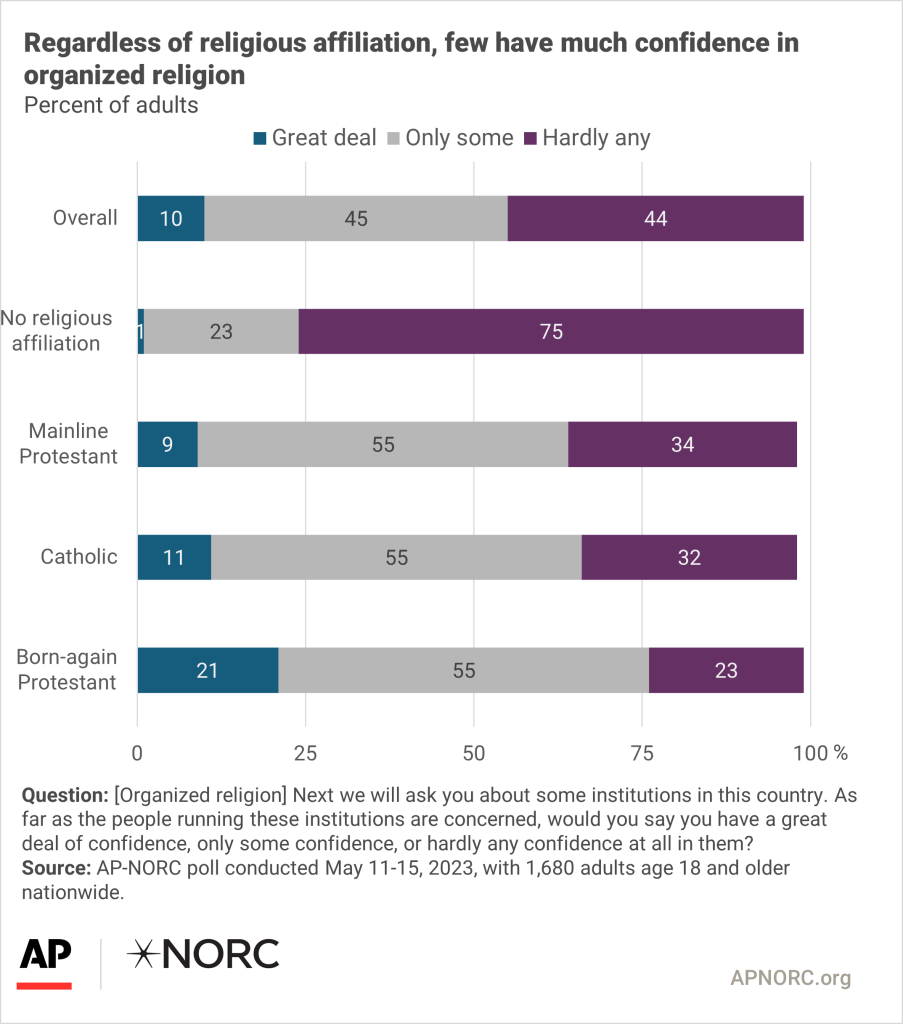
Similarly, trust in religious leaders has declined in recent years. Only 9% of adults have a lot of trust in their religious or spiritual leaders. 37% have some trust, while 53% have little or no trust. A 2021 AP-NORC poll found that 17% have a great deal of trust in their religious and spiritual leaders, 44% have some trust, and 39% have little or no trust. Ta.
Among those with no religious affiliation, 88% have little or no trust in religious or spiritual leaders, up from 77% in 2021.
Citizens are more likely to say that the tendency for people to distance themselves from identifying with a religious group is a bad thing (37%) than a good thing (23%). But nearly four in 10 feel it doesn’t matter one way or the other. About half of those with no religious affiliation feel this is a positive trend. Among people with a religious affiliation, 13% said separating from a particular religious identity was a good thing, 49% said it was a bad thing, and 36% said it was neither good nor bad. . New Protestants in particular are likely to see this trend as negative for society.
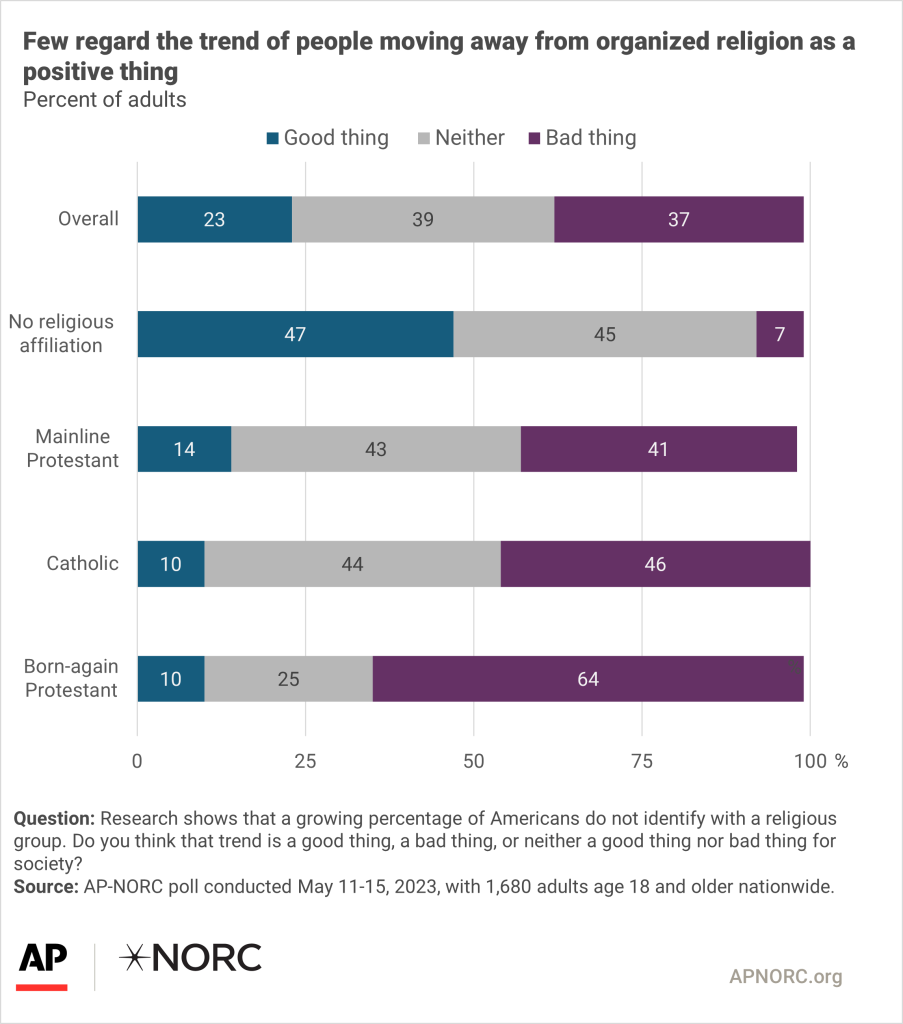
Overall, 30% said they had no religious affiliation. But about half of them, 54%, still consider themselves spiritual, religious, or both.
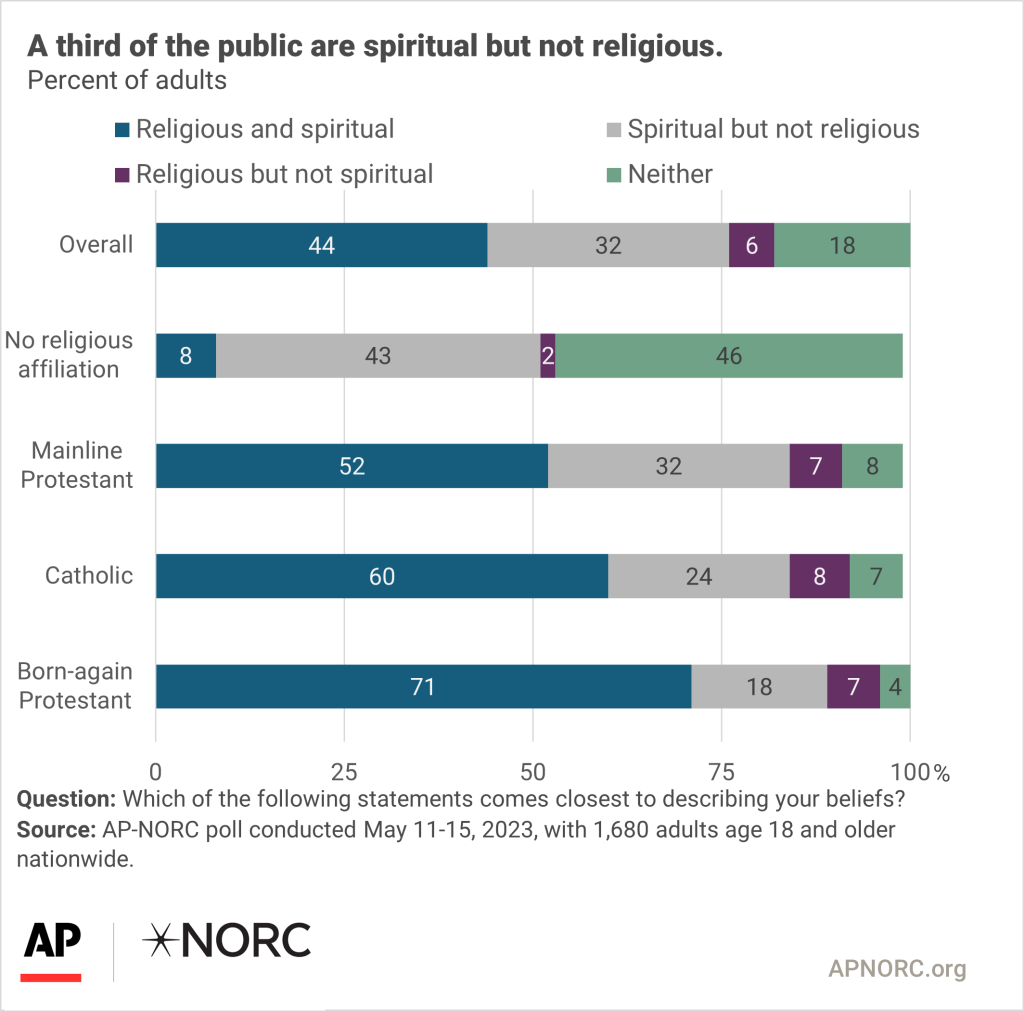
When asked to think about what defines their religiosity, 80% of religious adults said worshiping God was an important reason they were religious, and 70% said they were religious. It offers great growth and guidance.
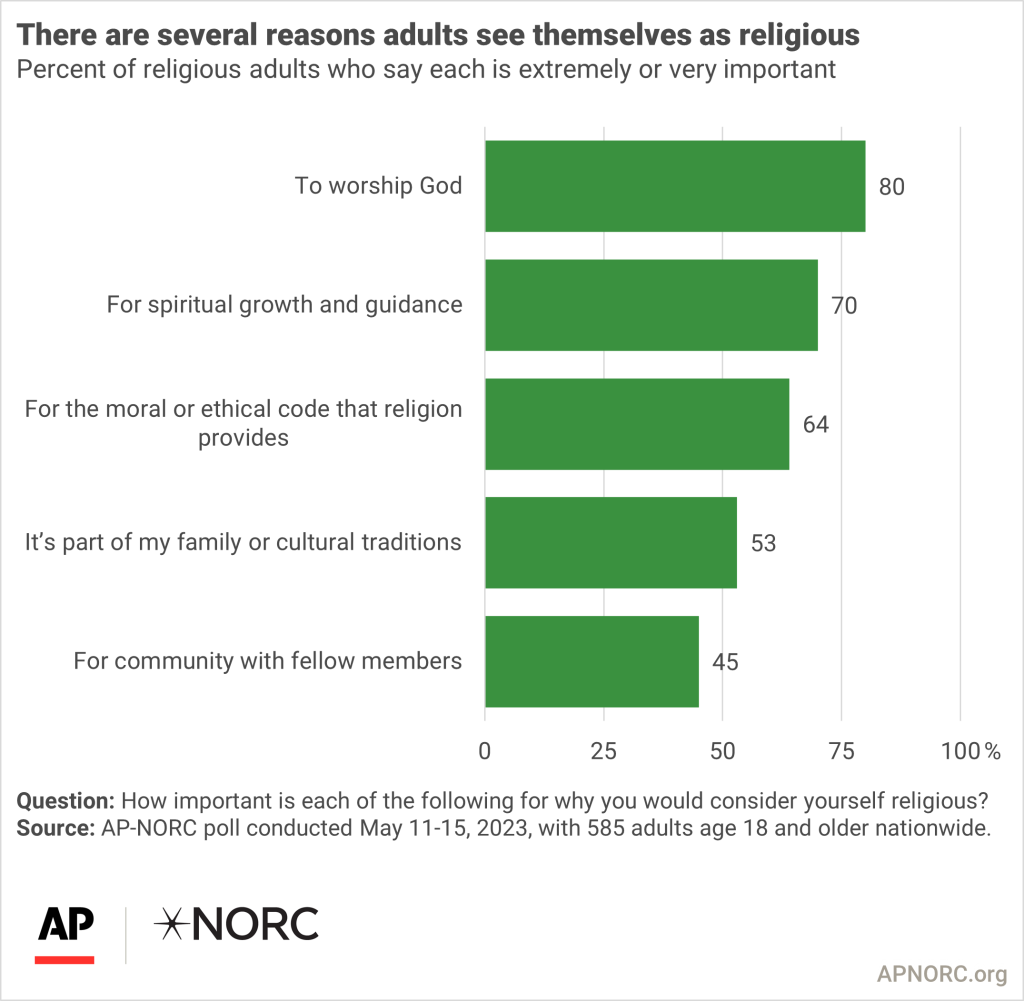
Forty-nine percent of the population considers themselves not religious, and for most of them organized religion in general, its political and social positions, or reports of abuse by its leaders are abhorrent. This is an important reason.
Among those with no religious affiliation, 68% say not liking organized religion is a very or very important reason they don’t consider themselves religious . A similar number, 63%, say that a very or very important reason is that they don’t like the stance their religion takes on social and political issues, and that they believe abuse or misconduct by religious leaders is a very or very important reason. He said 54% said the same about reporting.
However, only 46% of non-religious people say a lack of belief in God is an important reason why they consider themselves non-religious. Additionally, 17% say religion is not part of their family or cultural traditions.
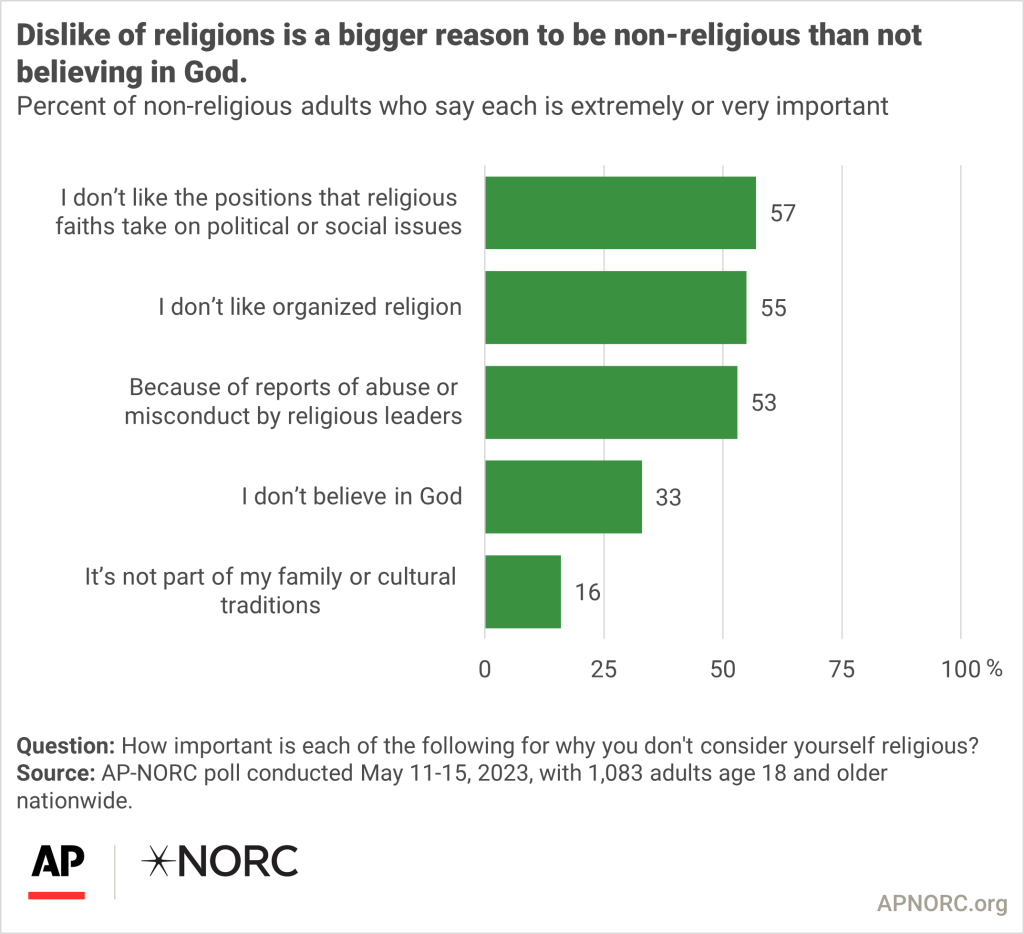
Roughly two-thirds of unaffiliated adults believe religion has a great deal of influence on the Supreme Court and most members of Congress, and 58% say they don’t care about what their children are taught in public schools. Respondents say that religion has a great influence. Only 32% of people think President Biden is too influenced by religion. New Protestants, both Democrats and Republicans, are more likely than mainline Protestants to say Mr. Biden has too little influence from religion.
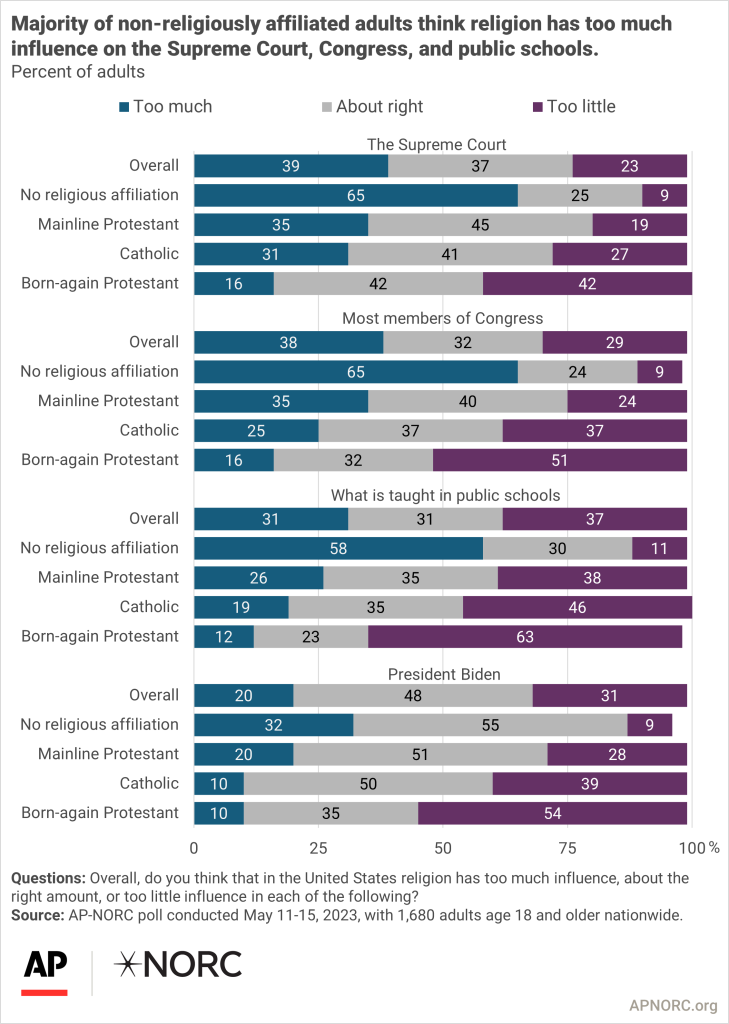
Less than a fifth (16%) of Americans attend religious services at least once a week, and a further 16% attend at least monthly. One-third of adults never attend. Adults over the age of 45 are more likely to attend her services at least once a month than those under 45.
Sixty-nine percent of unaffiliated adults say they never attend religious services, and 22% say they attend once or twice a year, or less often.
One-third of adults report attending religious services less often than they did five years ago. Half say they attend the same amount, and 14% say they participate more. Sixty-one percent of non-religious respondents say their attendance has remained the same over the past five years, while 35% say their attendance has decreased.
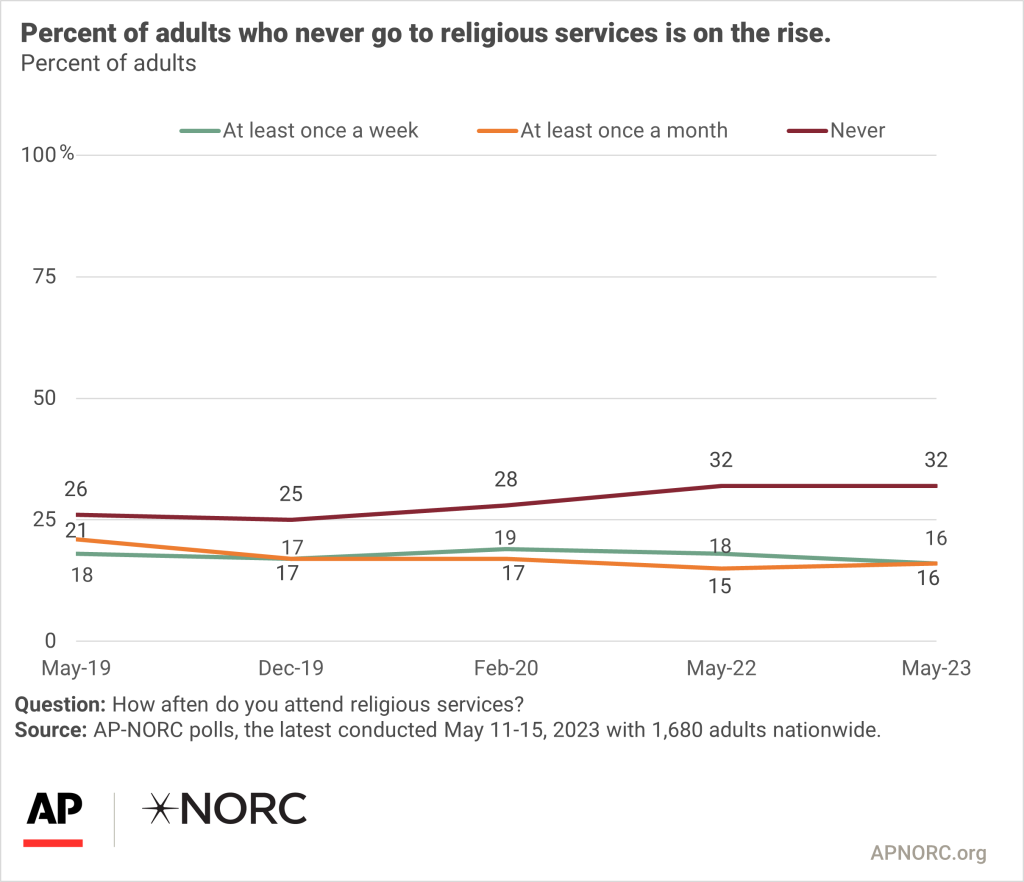
55% of all adults, including 73% of religious adults, say their religious beliefs bring fulfillment to their lives, but only 13% of those with no religious affiliation agree is. Spending time outdoors, spending time with family, and hobbies are important sources of fulfillment for independents.
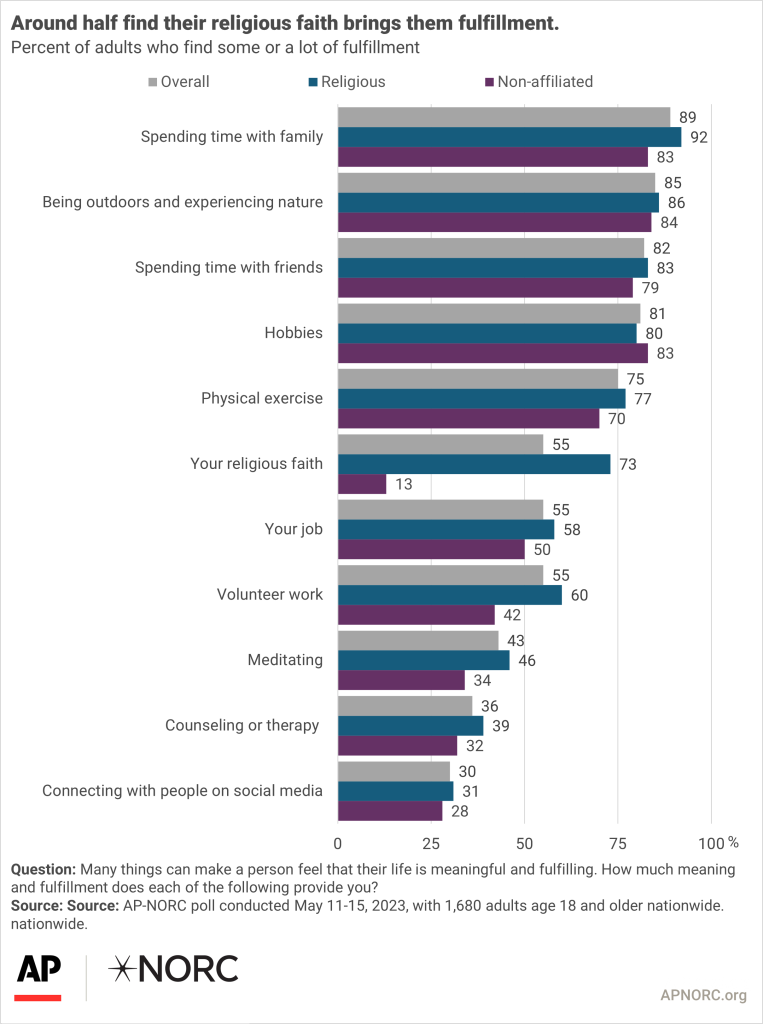
79% of adults believe in God or a higher power. More than 90% of Catholics and Protestants have faith in God or a higher power, as do 43% of non-religious believers.
Additionally, people have a wide range of spiritual beliefs. At least two-thirds of the population believes in angels, heaven, or the power of prayer. 83% believe there are things that cannot be explained by science or nature.
Belief in karma and ghosts is fairly widespread, with 42% believing that spiritual energies can be rooted in physical things such as plants, rivers, and crystals. About one-third of adults believe in reincarnation, astrology, and yoga as spiritual practices. Only 6% of people did not believe in the spiritual items asked in the survey.
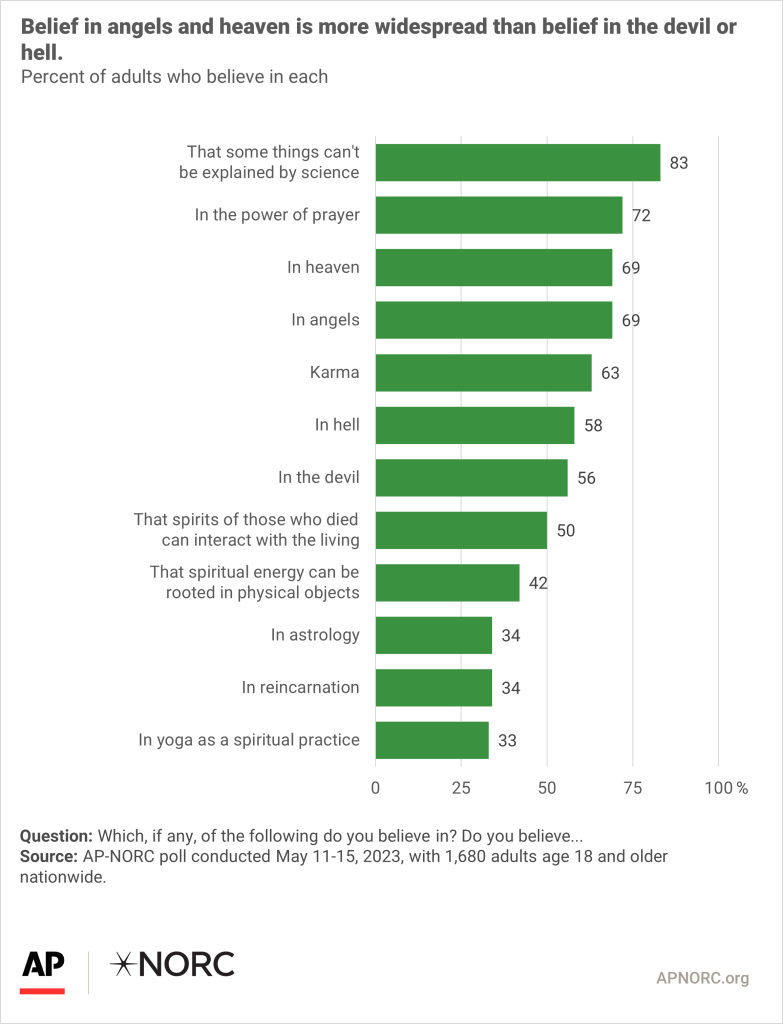
This national poll was conducted May 11-15, 2023 using the AmeriSpeak® Panel, a probability-based panel from the University of Chicago NORC. Online and telephone interviews were conducted with 1,680 adults using landline and mobile phones. The margin of sampling error is +/- 3.4 percentage points.
Respondents who identified themselves as “no particular religious preference,” atheist, or agnostic were sampled at a higher rate than their proportion of the population for analytical reasons. The overall margin of sampling error for her 900 interviews completed with these respondents is +/- 5.0 percentage points.

